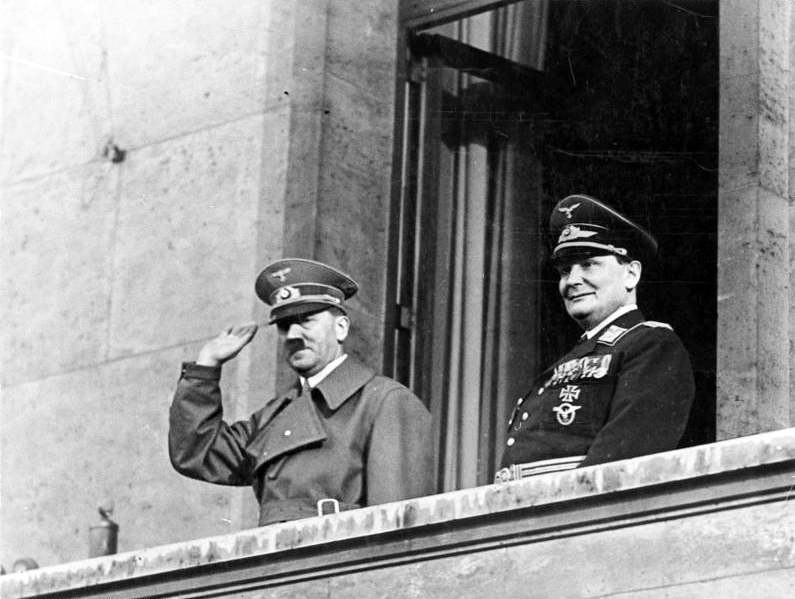
Advertisement
When the late Swedish chemist and engineer Alfred B. Nobel (1833-1896) made the decision to set aside a $9 million cash sum upon his death to establish the Nobel Prize, his vision was to honor the great men and women throughout time whose accomplishments in peace, literature, physics, chemistry, physiology, medicine, and economic science conferred the greatest benefits to mankind. Little did he know, however, that many questionable individuals would end up becoming recipients of this much-coveted award, including Nazi scientists whose work led to the development of the chemicals purportedly used in death camp gas chambers to murder prisoners.
One of these questionable individuals is Fritz Haber, a Jewish man who the history books say helped develop synthetic crop fertilizers that were later modified to become deadly chemical weapons (modern-day pesticides and herbicides). BBC News outlines Haber’s role in the development of these chemicals as having been good-intentioned. Working for chemical giant BASF, Haber partnered with Carl Bosch of the appliance company by the same name, to synthesize fertilizing ammonia from nitrogen and hydrogen for use on food crops, making them easier to grow — and generating more food for hungry people.
At the time, Haber’s accomplishment in developing this new fertilizer appeared entirely beneficial, having been dubbed by at least one observer to be “the most important technological invention of the 20th century.” And yet, as World War I began to break out, it was quickly realized that these same chemicals could also be used to develop chemical weapons, including the infamous IG Farben Zyklon B chemical that the Nazi regime used to gas Jews and other prisoners in concentration camps.

Even if he was just an ordinary, well-intentioned man who, like any other good Germans of the time, simply wanted to demonstrate his patriotism, Haber would quickly go on to become a key asset in the Nazi war effort. BBC News credits him as being the first to experiment with chlorine gas, which earned him a position of captain in the German army. During this time, and before his untimely death, he also developed pesticide gases that would later be transformed into Zyklon B.
“Haber’s life was the tragedy of the German Jew — the tragedy of unrequited love,” wrote Haber’s friend and much-better-known colleague as far as history is concerned, Albert Einstein, about Haber’s experience during the Nazi Party’s rise to power. Haber, if you don’t know the full story, was eventually forced into exile as anti-Jewish sentiment escalated prior to World War II.
Henry Kissinger, Al Gore, and Barack Obama: the Nobel Prize gone wrong
To Haber’s credit, his sordid legacy is somewhat a mixed bag. While he didn’t intentionally and necessarily betray his fellow Jewish countrymen with his accomplishments in fertilizer and pesticide technology, his work in these areas was still used by others to murder untold millions of Jews and other political prisoners during the Nazi era. And there are many others with similar legacies, not to mention those who are known war criminals, who have been recipients of the Nobel Prize over the years.
One notable example is Henry Kissinger, who was accused of committing war crimes for his involvement in the secret bombings of Cambodia between 1969 and 1975. Just two years after receiving the Nobel Prize, North Vietnam invaded South Vietnam, sparking the horrific violence of a war that never should have happened in the first place; the Vietnam War. Needless to say, Kissinger’s Nobel Prize win was highly controversial, and two Norwegian Nobel Committee members actually resigned because of it.
Al Gore is another questionable winner of the Nobel Prize, whose “accomplishments” in climate science research were overshadowed by his own hypocritical lifestyle. While preaching against the sin of atmospheric carbon dioxide and the need for humans to start living more modestly to offset rising global temperatures, Gore was exposed for using more than 20 times the national average of electricity at his Tennessee mansion, which has 20 rooms and a separate “pool house” — this is in addition to the fudged climate numbers that Gore used to support the failed notion of man-made global warming.
And who could forget war criminal Barack Obama’s ridiculous win of the Nobel Peace Prize just 12 days after he took office in 2009. Obama hadn’t accomplished anything at that point other than laying the groundwork for continuing the Middle Eastern wars started by the previous Bush administration. Not only did Obama continue with these failed policies, but he actually escalated them. Journalist Kirsten Powers referred to Obama’s later aggression against Syria as a “determination to attack,” as well as his ongoing support of the war in Afghanistan, which she described as “pointless and failing.” Needless to say, there was absolutely no justifiable reason why Obama should have been honored for supporting peace, when in reality he was just another war hawk president.
Follow more news on truly evil people and events at EVIL.news.
Sources for this article include:
Submit a correction >>
This article may contain statements that reflect the opinion of the author
Advertisement
Advertisements















